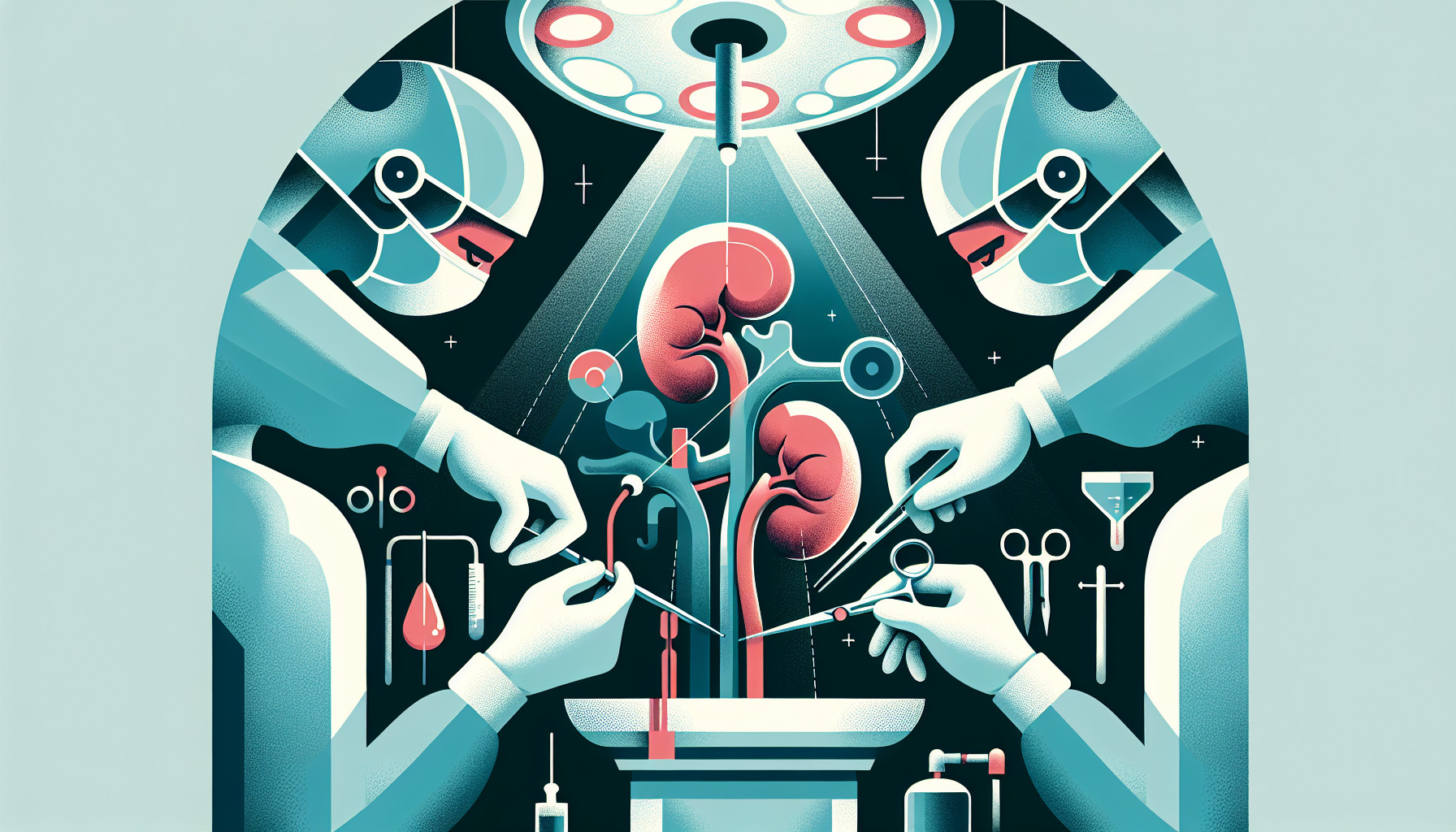Our Summary
This research paper is about a study conducted on children who needed to have a kidney removed due to it not functioning properly. This is usually done through a process called laparoscopic nephrectomy, which can be performed in two ways: through the front of the abdomen (transperitoneal approach) or from the back (retroperitoneal approach).
The study aimed to determine which of these two methods was safer and more effective. It involved 79 children who had this procedure between 2007 and 2019, and were divided into two groups depending on the method used.
The results showed that both methods were successfully completed in most cases, with only 4 needing to be switched to open surgery. However, there were some differences between the two groups. Children who had the surgery from the back experienced less blood loss during the operation, were able to eat again sooner, and had a shorter stay in hospital.
So, in conclusion, the study suggests that both methods are safe and effective for removing a non-functioning kidney in children, but the approach from the back might be slightly better in terms of recovery. However, the choice of method should be based on the surgeon’s experience and preference.
FAQs
- What is a laparoscopic nephrectomy and how is it performed?
- What were the key findings of this study on laparoscopic nephrectomy in children?
- How does the choice of surgical approach impact the recovery of the patient after a laparoscopic nephrectomy?
Doctor’s Tip
One helpful tip a doctor might tell a patient about laparoscopic nephrectomy is to discuss with your surgeon the best approach for your specific case. Each patient is different and may benefit more from either the transperitoneal or retroperitoneal approach. Trusting your surgeon’s expertise and following their recommendations can help ensure a successful and smooth recovery process.
Suitable For
Patients who are typically recommended for laparoscopic nephrectomy include those with non-functioning or diseased kidneys, kidney tumors, kidney cysts, kidney stones, and other kidney conditions that require surgical removal. Laparoscopic nephrectomy is a minimally invasive procedure that offers several advantages over traditional open surgery, such as smaller incisions, less pain, faster recovery, and shorter hospital stays.
Additionally, patients who are in good overall health, have a low risk of complications, and are suitable candidates for general anesthesia are also recommended for laparoscopic nephrectomy. However, it is important for patients to discuss their individual medical history, condition, and treatment options with their healthcare provider to determine if laparoscopic nephrectomy is the most appropriate treatment for them.
Timeline
Before the laparoscopic nephrectomy:
- The patient will undergo various tests and evaluations to determine the need for surgery and to ensure they are a suitable candidate.
- The patient will meet with their healthcare team to discuss the procedure, risks, benefits, and recovery process.
- The patient may need to follow specific pre-operative instructions, such as fasting before surgery.
- The patient will be admitted to the hospital on the day of surgery and will undergo pre-operative preparations.
After the laparoscopic nephrectomy:
- The patient will wake up in the recovery room after the surgery is completed.
- The patient will be monitored closely for any complications or side effects.
- The patient may experience some pain and discomfort at the incision sites, which can be managed with pain medication.
- The patient will be encouraged to start moving around and walking as soon as possible to aid in recovery.
- The patient will be discharged from the hospital once they are stable and able to manage at home.
- The patient will have follow-up appointments with their healthcare team to monitor their recovery and address any concerns.
What to Ask Your Doctor
Some questions a patient should ask their doctor about laparoscopic nephrectomy include:
- What are the risks and benefits of laparoscopic nephrectomy compared to open surgery?
- How experienced are you in performing laparoscopic nephrectomy procedures?
- Which approach (transperitoneal or retroperitoneal) do you recommend for my specific case and why?
- What is the expected recovery time and post-operative care for laparoscopic nephrectomy?
- What can I expect in terms of pain management after the procedure?
- Are there any potential complications or long-term effects I should be aware of?
- Will I need any follow-up appointments or tests after the surgery?
- How will my kidney function be monitored after the non-functioning kidney is removed?
- Are there any lifestyle changes or restrictions I should be aware of after the surgery?
- Are there any alternative treatment options I should consider before proceeding with laparoscopic nephrectomy?
Reference
Authors: Sarhan OM. Journal: J Pediatr Urol. 2021 Aug;17(4):568.e1-568.e7. doi: 10.1016/j.jpurol.2021.05.006. Epub 2021 May 13. PMID: 34053858
